Contents
Guide
STRANGE VICTORY
HITLERS CONQUEST OF FRANCE
ERNEST R. MAY
 HILL AND WANG
HILL AND WANG
A DIVISION OF FARRAR, STRAUS AND GIROUX
NEW YORK
The author and publisher have provided this e-book to you for your personal use only. You may not make this e-book publicly available in any way. Copyright infringement is against the law. If you believe the copy of this e-book you are reading infringes on the authors copyright, please notify the publisher at: http://us.macmillanusa.com/piracy.
To Richard E. Neustadt, colleague, collaborator, friend
On the afternoon of May 9, 1940, at the resort town of Clervaux, in the forested north of Luxembourg, Camille Schneider entered the telephone booth outside the post office. An undercover representative of the French Secret Service, Schneider had tried in vain to reach his chief in Luxembourgs capital and was risking a direct call to the next echelon, the regional intelligence center at Longwy, just over the border in France. Schneiders message was urgent. With his own eyes he had seen soldiers on the German side of the Sre River preparing pontoon bridges on which heavy vehicles could cross into Luxembourg.
Two days earlier, Schneiders chief, Fernand Archen, a pretended wine merchant in Luxembourg, the duchys capital, had reported to Longwy the arrival of German commandos disguised as tourists. On signal, he had been told, these commandos were to seize bridges on the Sre and the two other rivers that separated Luxembourg from Germany, the Our and the Moselle. On May 9, he missed Schneiders calls because he and his radio operator had taken the evening off to see Errol Flynn in a dubbed version of Dawn Patrol. As soon as he returned to his quarters, he heard not only from Schneider but from others, including informants in the Luxembourg gendarmerie, who reported exchanging shots with armed Germans discovered at a lonely farm not far from the Moselle. Using a clandestine transmitter, Archen radioed Longwy at 11:45 P.M. : Reports of important German troop movements on the German-Luxembourg frontier. Through the night, his messages became more detailed and frantic.
At Vormeldange, on the Luxembourg side of the Moselle, meanwhile, two Luxembourg customs officers had been trying to make out what was happening on the German side of the river. They heard horses neighing and men calling to one another, but the fog was heavy and their field glasses showed them nothing. Then, just before dawn, as the fog was turning into mist, a German lieutenant ran across the international bridge with twenty soldiers behind him. Since the bridge is a good seventy yards long, the guards had plenty of time to use their rifles, but they did no more than yell Halt! Then the German lieutenant had them at gunpoint, and his sergeant sent up a flare. At this signal, foot soldiers and horse-drawn guns and wagons of the German Twelfth Army began to file across.
North of Vormeldange, German soldiers simultaneously seized other crossing points or laid pontoon bridges of the type spotted by Schneider at Clervaux. Infantry marched over, followed by horses pulling guns or supply wagons. At Echternach, Bollendorf, Wallendorf, and Wanden on the Sre, it was not shoes and horse hooves that rattled the bridges but mile-long files of tanks accompanied by trucks, cars, and motorcycles carrying motorized infantry. Nazi Germany had commenced its war to conquer France.
The messages from Schneider, Archen, and other spies in Luxembourg and elsewhere made little impression in France. Responsibility for guarding the France-Luxembourg frontier lay with General Robert Petiet, commander of the Third Light Cavalry Division. He was taken completely by surprise when awakened around daybreak by the sound of German bombers passing overhead to raid air bases in France. In Paris, similarly, the first news was of attacks on French air bases, then of German parachutists dropping on Rotterdam in the Netherlands.
Orders went out to respond to the German attack by executing a long-prepared plan, the result of which would be to send the best-trained troops and newest tanks of France and Britain to the southern Netherlands and eastern Belgium just as Germanys best-trained troops and newest tanks entered Luxembourg, headed for the Ardennes Forest and the Meuse River of eastern France.
Within a few days, French and British leaders would recognize that they had made a tragic mistake. German tanks by then were chugging several abreast across fields in the French heartland. Allied forces in Belgium were cut off from those in central France, partly by civilian refugees clogging the roads. The situation proved beyond rescue. Britain eventually evacuated as many troops as possible from the port of Dunkerque. French armies retreated farther and farther to the west and south. A new French government, formed under the aged Marshal Philippe Ptain, agreed to armistice terms. On June 22, not quite seven weeks after the first German soldiers had crossed into Luxembourg, German cavalry clattered down the Champs-lyses in Paris in a victory parade, with their Fhrer, Adolf Hitler, looking on.
More than anything else, this happened because France and its allies misjudged what Germany planned to do. If leaders in the Allied governments had anticipated the German offensive through the Ardennes, even as a worrisome contingency, it is almost inconceivable that France would have been defeated when and as it was. It is more than conceivable that the outcome would have been not Frances defeat but Germanys and, possibly, a French victory parade on the Unter den Linden in Berlin.
This book tries to explain how and why leaders in Paris and other Western capitals made such fateful misjudgments, even though France had an intelligence network that included not only Schneider and Archen but men and women high in the German government and at the very top of Germanys own intelligence apparatus.
In June 1940, and for a long time thereafter, the fact of Frances rapid defeat seemed to speak for itself. Three conclusions were thought obvious. First, Germany must have had crushing superiority, not only in modern weaponry but in an understanding of how to use it. Second, France and its allies must have been very badly led. Third, the French people must have had no stomach for fighting. Marshal Philippe Ptain, who headed the satellite French government of 194044, ascribed Frances defeat to moral laxness. Though not everyone would have used Ptains particular term (relchement), most people around the world agreed that Frances defeat owed something to lack of moral fiber.
Now, sixty years later, in light of what is known about the circumstances of Frances defeat, none of these conclusions holds up well. Overall, France and its allies turn out to have been better equipped for war than was Germany, with more trained men, more guns, more and better tanks, more
While evidence that France was not inferior militarily might seem to strengthen the conclusion that leadership was bad, this proposition also has come to seem doubtful. It should probably have seemed so long ago, for the implicit corollary is that Germany was comparatively well led. At a tactical level, this might be defensible, for the best field commanders in the German armyHeinz Guderian and Erwin Rommel, for examplewere very good indeed. But it is hard to make a case that, all in all, Germanys timid, wrangling generals had an edge on men similarly placed in France or Britain, let alone that Hitler and his henchmen were more astute or adroit than political leaders in Paris and London. Recent studies of General Gamelin, of Frances prime minister, douard Daladier, and of Britains long-maligned prime minister, Neville Chamberlain, not only explain why they were thought to be heroes before the dbcle of 1940 but why they

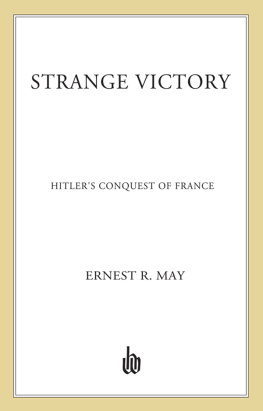


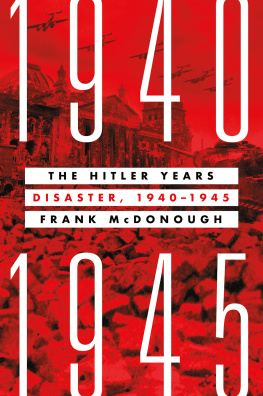
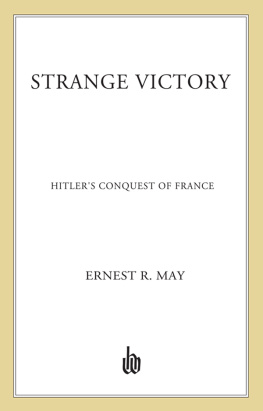

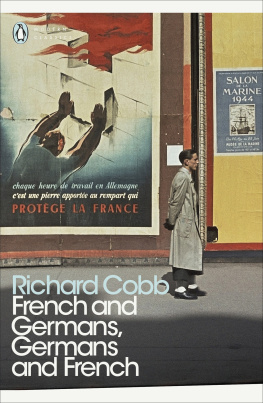
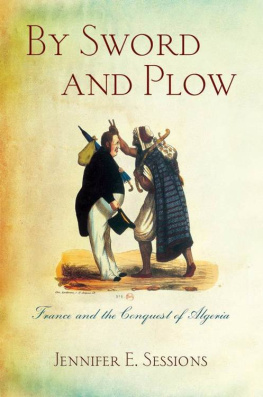
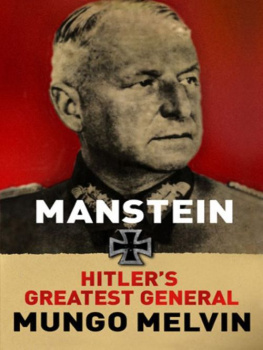

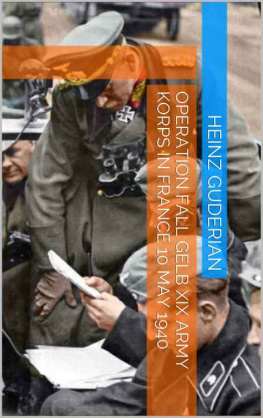
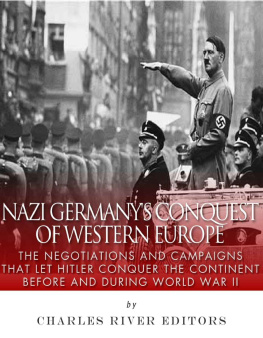

 HILL AND WANG
HILL AND WANG